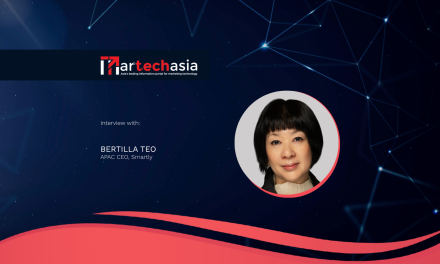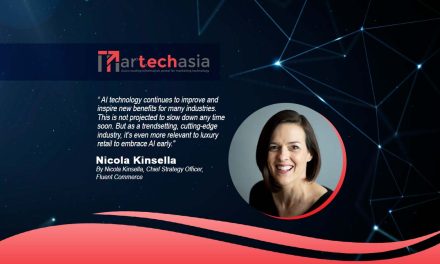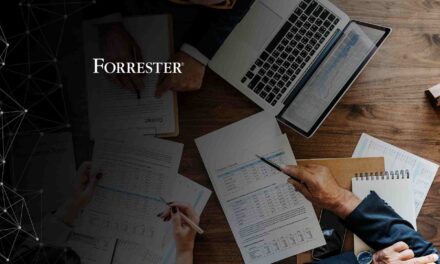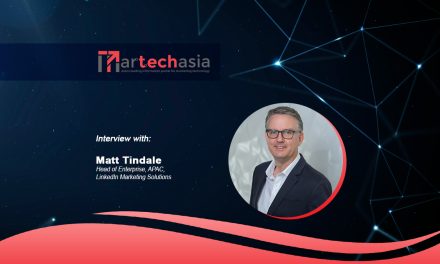And marketing is one area certainly affected by the adoption of artificial intelligence in the photography, art and music industries.
Almost half of the companies surveyed by CNBC say that artificial intelligence (AI) is their top priority for tech spending over the next year.
Additionally, AI budgets are growing exponentially: more than double the second-biggest spending area in tech, after cloud computing.
This is because AI is becoming a permanent part of businesses today, according to Iterate.ai Co-Founder Brian Sathianathan.
“AI isn’t just a trending buzzword, It’s a growing and permanent fixture in today and tomorrow’s world. These survey results demonstrate its vital role as the cornerstone of technological progression. As companies increasingly prioritize AI over other tech spending areas like cloud computing, we’re witnessing not just a trend, but a paradigm shift, reflecting AI’s transformative potential and its definitive place in our future,” explained Brian.
The significant emphasis companies are placing on AI, as shown in the CNBC survey, signals a collective understanding of AI’s transformative potential. The exponential growth in AI budgets, surpassing even pivotal areas like cloud computing, is a testament to its role as the driving force of technological advancement.
We are witnessing a future being shaped where AI isn’t just an option, but a necessity. Here are some ways we see the AI story unfolding, and the challenges it poses for marketers and people in their supply chain:
Art and photography
TikTok users are using AI apps to transform selfies into professional headshots. In one post, a happy snap taken at drinks becomes a professional headshot complete with generated clothing and backdrop.
This has caused people, particularly photographers, to be understandably concerned about the future and their job stability.
However, Shomron Jacob, Head of Machine Learning, Iterate.ai, said this won’t run photographers out of business, claiming that AI can even help make their jobs more efficient in the long-run.
“AI in photography isn’t about replacing the artist, but enhancing their creativity and streamlining their workflow,” Shomron explained. “AI is a tool that can swiftly sift through countless images to highlight the gems, fine-tune compositions with remarkable precision, and effortlessly edit or manipulate elements. It’s not solely about making the process more efficient; it’s about empowering photographers to concentrate more on their artistry and vision, all while leveraging AI’s potential to curate captivating content, increase viewer engagement, and fuel viral trends on platforms like TikTok.”
And while it is a cool feature to create artificially generated headshots, AI still hasn’t figured out how to make hands, so photographers are needed for the foreseeable future!
Music
The music industry faces a critical challenge in the lack of a sustainable and scalable interface connecting music content with creators. Additionally, music licensing and the music publishing industry has been put on the backburner, to the detriment of artists and creators.
Early-stage artists get overlooked because of human gatekeeping, and search methods are rigid and outdated. Content creators and marketers often have difficulty finding new, original, or cost-effective material.
Incantio hopes to be the solution. A revolutionary, music-first platform that is leveraging AI to crack open the shadowy and dense world of sync licensing, it seeks to bring real opportunities to everyone invested in the business of making music.
Whether you make music yourself or use it to support your work as a marketer, Incantio is working with AI technology to expand and redefine the discovery of music for commercial creatives.
“There is both an expanding universe of new independent music and an exploding need for music in podcasts, films, streaming TV, and other media,” said Danny Newcomb, CEO, Incantio. Without a sustainable, scalable interface to connect music content with content creators, the music licensing and publishing industry has been a ‘neglected stepchild’ for years, with outdated modes of collecting royalties and complicated contracts for ownership rights.
“Incantio is building a click-through templated licensing system that can be managed by the artists themselves,” said Newcomb.
By leveraging AI technology, Incantio is working to open up the doors that were previously shut to all creators and musicians. “With gatekeepers at all labels, catalogs, and platforms, artists are not in control of their own careers. By giving impartial recommendations through AI based on music searches, we let the searches curate themselves through our AI. By acknowledging and rewarding artists who are successful on Incantio, we can provide a different path to success than streaming metrics. Artists, through technology, are poised at the brink of being able to fully own their own site for licensing their music, and potentially streaming their own music.”
He added: “Since the music industry has always been based on controlling either the product or the means for distribution, they may now be outpaced in a world of digital distribution and impartial AI recommendations.”
Talented early-stage artists, and even middle-stage artists can get easily overlooked in today’s music industry. Gatekeeping, while important to forming brands for catalogs and labels, cannot always give a fair shake to a new and different sound, and human-curated playlists are always valuable, but are valuable because of their biased perspective.
“The traditional ways that new music has been recommended have become bottlenecks in the face of an explosion of recorded and distributed digital music. Content creators are pushed to use licensing sites where rights are owned by the platform and the very catalog is stale because of a lack of turnover,” explained Newcomb.
The solution, he believes, is in “building an artist-driven system on both sides of our platform, one that creates a constant stream of independent music that is pre-licensed for use by content creators.”
Said Newcomb: “Through our patented ‘vibe’ search engine that lets users search new music through our AI by uploading a song, we offer impartial, music-to-music based searching that allows a beginning artist as much of a chance as an established artist to have their music found. We can do 1000 searches a day or 10 million and find music that has never been licensed before. We can scale the music recommendation business to meet the demand and the content.”



















